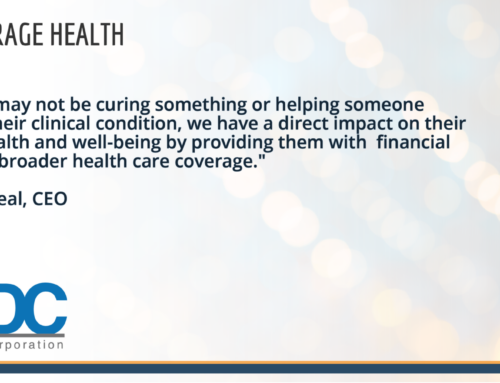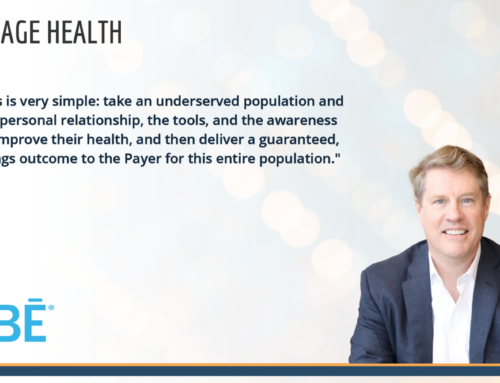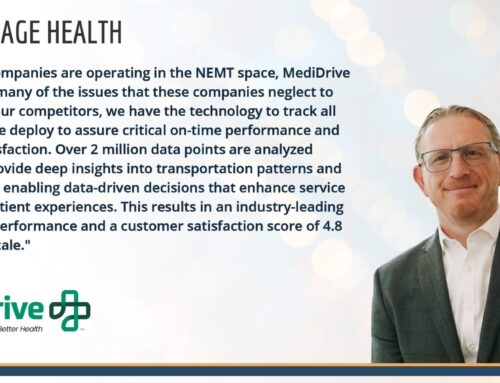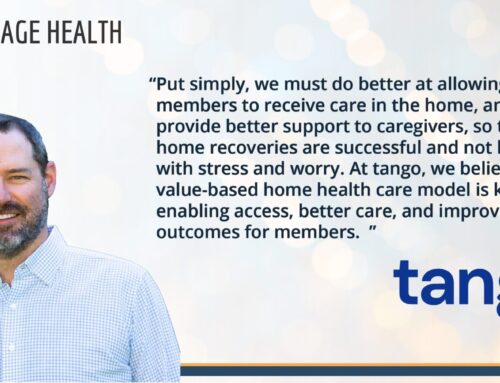
Issue 4, April 2020
Leverage Health is pleased to distribute this issue of Leverage Insights highlighting an interview with Charlie Falcone, Chief Executive Officer of Aperture as well as Co-Managing Member of Leverage Health Solutions.
Leverage Insights offers a uniquely insightful and actionable view into the healthcare marketplace. We are proud and grateful to share the experiences and knowledge of the industry leaders participating in Leverage Insights. Our relationships with these experts, like Charlie, have long been a critical asset to our organization and we are honored to bring that expertise to you.
It is challenging to maintain a sense of “business as usual” in the context of COVID-19. Across our portfolio, Leverage Health is focused on and sensitive to the long term, serious medical and economic ramifications to our society and beyond.
We want to discuss provider network management as it is especially relevant right now, but also in preparation for the time when COVID-19 is behind us. We will be dealing with “the new-normal” and one aspect of this changed environment will be a more remote workforce across health plans. Aperture will play a vital role in managing this shift due to Aperture’s powerful network management solutions platform.
Lastly, due to the broad importance of provider networks, provider access and provider quality we wanted to highlight this interview as a standalone issue of Leverage Insights. It is also important to note that all types of providers will be dealing with a new normal of their own that will affect the way they manage their offices. Enabling providers to focus their time on caring for patients versus paperwork and other administrative items is critical.
Aperture is a Leverage Health Portfolio Company and the long-time market leader in provider lifecycle and network management including credentialing, provider directories, and provider data quality and compliance.
— Richard Lungen
The Broad Importance of Provider Networks, Provider Access and Provider Quality
What is the history of Aperture?
Charlie Falcone: Aperture was formed as an independent company in 1997 out of what was originally a division of Humana. It then became a part of Ingenix which later was branded as Optum in the 2000s. In 2014, a group of investors including Leverage Health and the current management team acquired Aperture, made it a fully private, stand-alone company, and have since grown the business to become the largest independent credentialing and provider lifecycle management company in the industry. Upon acquiring the company, I became CEO and have enjoyed this opportunity ever since.
Over the years, Aperture has added additional capabilities which expanded Aperture from being the national market leader in credentialing to also offering provider network management solutions including directory management, provider data management and provider lifecycle software. Our capabilities around all those solutions were expanded when we made a significant acquisition in 2019.
We are very excited to continue bringing this robust offering to payers, providers, states and all stakeholders in healthcare.
What services does Aperture offer?
Charlie Falcone: The company originally was founded to provide high-quality, cost-effective credentialing services for health insurance carriers. Under its current leadership Aperture has expanded beyond its original focus on credentialing and into a broader suite of provider data management solutions. Today, Aperture’s platform encompasses credentialing, network administration, and robust provider data services. Aperture continues to be an industry leader in providing credentialing solutions to payers, providers, and states. By offering full provider lifecycle, directory, and network-management software and services, Aperture enables payers, health systems, states, and other key stakeholders to administer smarter and more effective provider networks.
What does Aperture’s customer base look like?
Charlie Falcone: Aperture’s client base consists of more than 100 of the industry’s largest national and regional insurance carriers and payer-related entities, states, as well as dozens of health system and provider related entities. On an annual basis Aperture interacts with millions of providers serviced by our team of over 500 subject matter expects.
How does Aperture view the market opportunity?
Charlie Falcone: There is a high priority in the industry to optimally manage payer/provider workflow and network administration inclusive of enrollment, contracting, credentialing, provider data and directory management. Health plans have historically and typically not had efficient end-to-end systems that seamlessly manage their provider networks and provide tracking and reporting capabilities across their enterprise.
States across the country are seeking to align Medicaid enrollment and provider management processes to including fee-for-service and MCO credentialing and provider data compliance. Aperture is the leader and will continue to innovate to drive efficiencies for payers and providers in state based unified and aligned credentialing and provider data management.
In addition, the impact of inaccurate, out-of-date directories causes high consumer dissatisfaction and prevents members from finding the right provider. Health plans are trying to implement value-based models and advanced care management programs, where aligning patients and providers is essential, but they are finding these programs are significantly challenged by poor underlying data and master data management capabilities. The lack of accuracy and visibility in current provider information opens the door for fraud, waste, and abuse. All told, the industry could save billions of dollars by solving these problems. In response, Aperture has invested heavily in its products and services to grow and scale with its clients.
What is driving Aperture’s continued growth?
Charlie Falcone: There are several industry pain points that have created opportunity and fueled growth for Aperture. First is the magnitude of the provider data problem in the industry and the fact that most organizations now understand that they have a challenge. Today, most health plans see provider data and network as a top priority. Health plans must invest in a platform like Aperture’s to achieve their strategic network objectives and improve provider data accuracy and quality. Also, the increasing number of network configurations to support unique plan designs, tiering, provider profiling, value-based arrangements and other initiatives has created complex master data management needs. Aperture has invested heavily in critical items like FHIR APIs to allow our clients to stay compliant and efficient. Another trend is that payers and health systems are more inclined today to outsource provider data and network management functions. Payers and systems recognize that internal IT teams have not been able to—and likely will not be able to—solve this complex challenge on their own. Plus, those internal teams should be focused on items that are more core to clinical and member facing initiatives. The same is true with states and their provider enrollment and management, further catalyzed by the Centers for Medicare and Medicaid Services (CMS) modularity mandate in 2016.
What does Aperture’s market competition look like?
Charlie Falcone: Aperture’s largest source of historical competition is the in-house, status quo solution set. That is starting to shift as health plans and provider systems acknowledge the need for advanced network design, higher-quality data, and greater compliance tools. In addition, there are a growing number of single point solution vendors that focus on a single item—credentialing, provider data quality, network management, directory—that Aperture addresses as a single enterprise solution or allows its clients to plug and play point solutions. Most competing point solutions that we see have neither the ability to scale nor the deep experience with large, complex customers such as payers and states—Aperture does. Aperture’s strength and differentiation is in its platform, breadth of product offering and deeply experienced team—which allows the company to address the problem with an end-to-end solution, offering both software and services. Technology alone cannot solve the complex configuration and implementation of the right set of solutions.
What are the key areas, or pain points, in the healthcare experience that the organization hopes to address?
Charlie Falcone: The greatest pain points we hope to address are the acute and complex issues of enterprise wide provider data management. Aperture is focused on lowering costs and improving efficiency for clients. As a result, Aperture’s clients are free to focus their attention and resources on their highest value-add initiatives such as designing high-performance networks in the most cost-effective manner, with higher network quality, faster enrollment turn times, and enhanced provider and member satisfaction. The pain points are industrywide and affect payers, providers, states, and consumers. Solving for compliance, network management, and data accuracy is more than just scrubbing or cleaning provider data—it involves assembling and implementing best-in class processes and workflow, all driven by technology and service offerings.







Stay In Touch